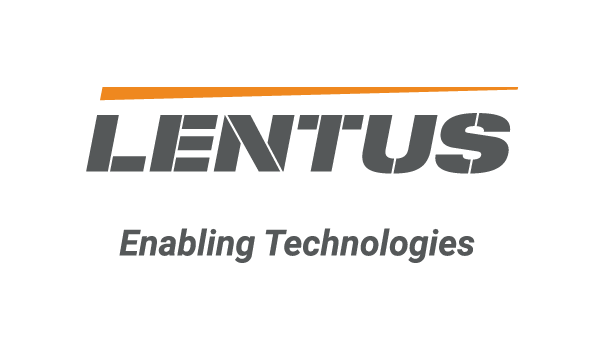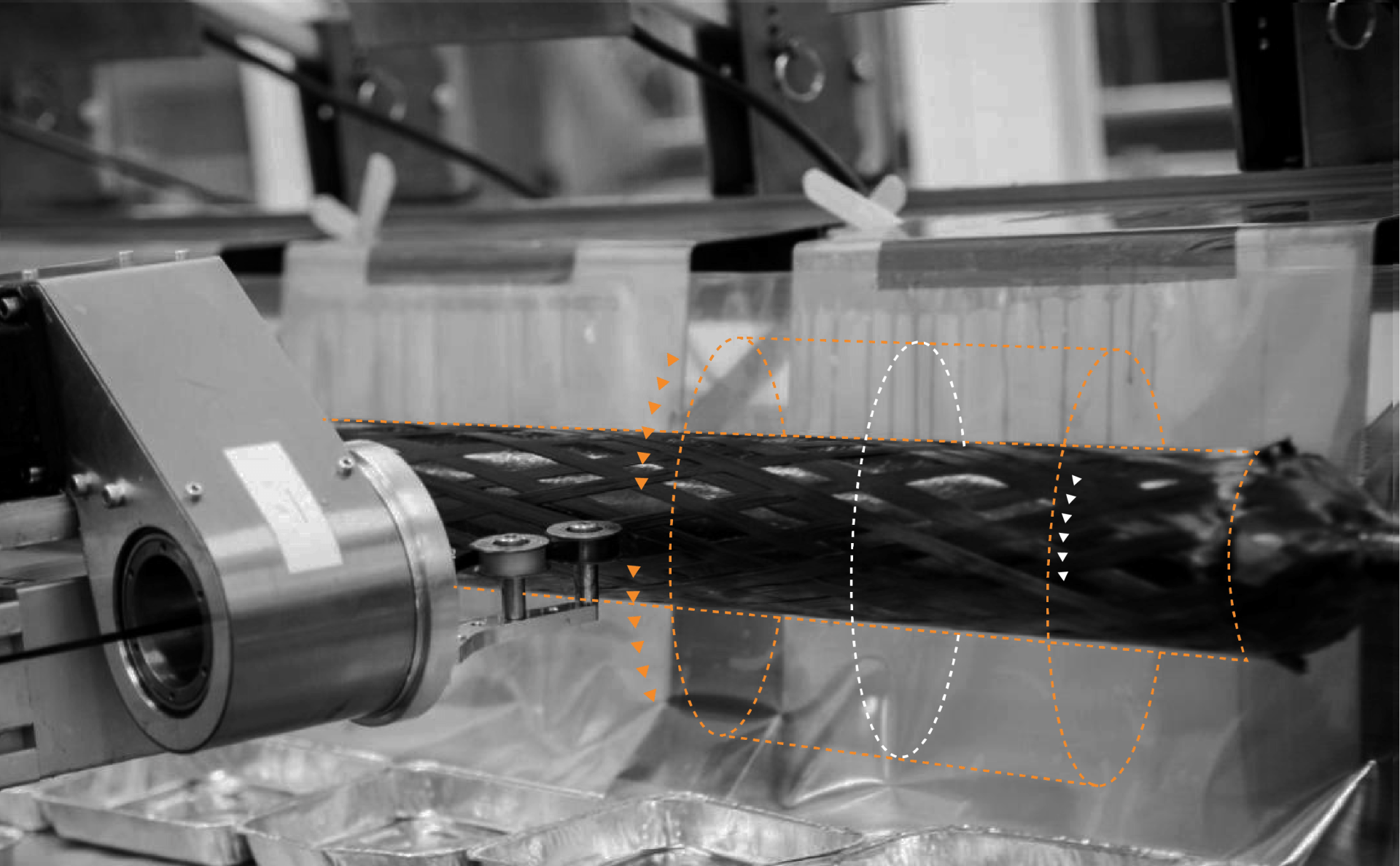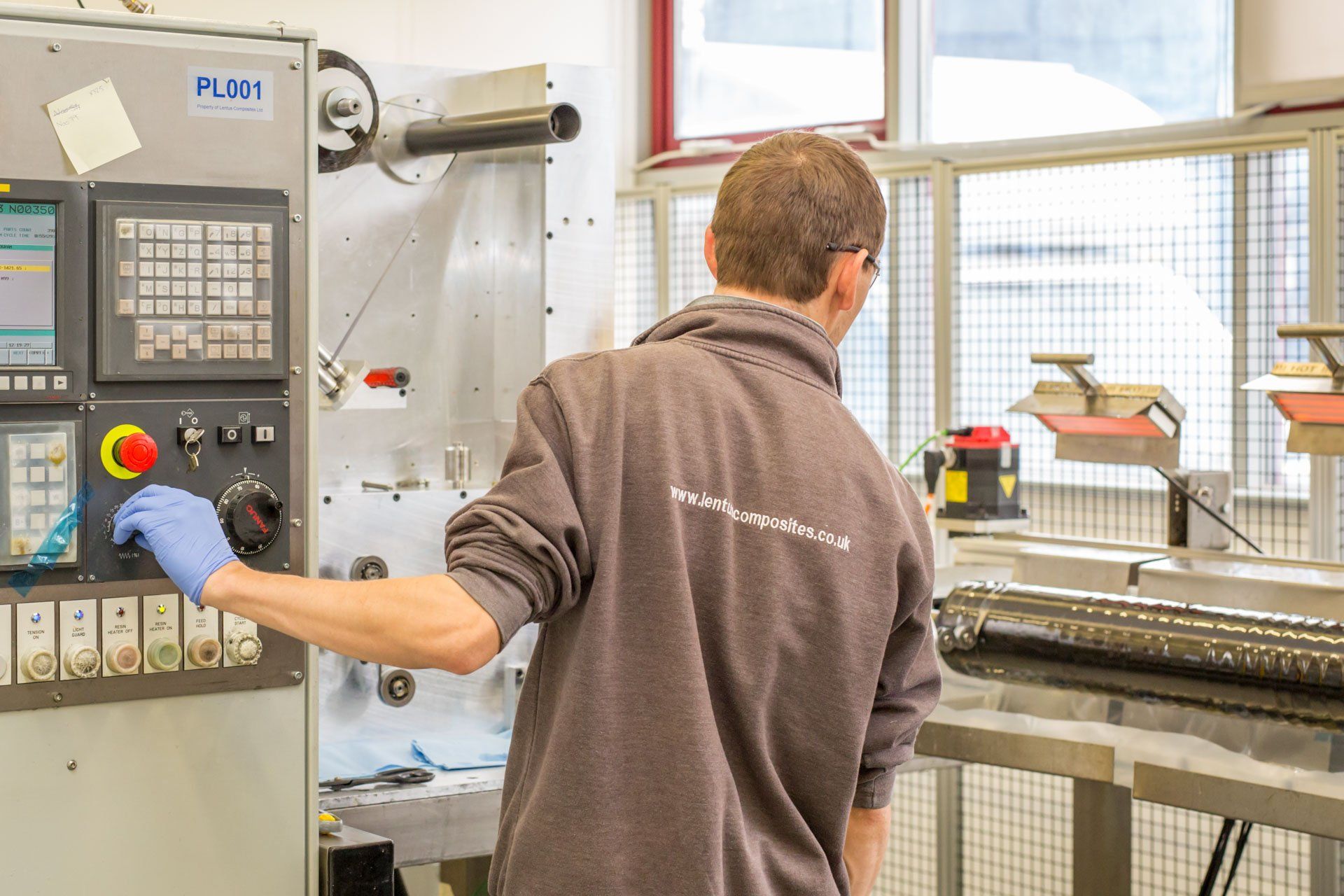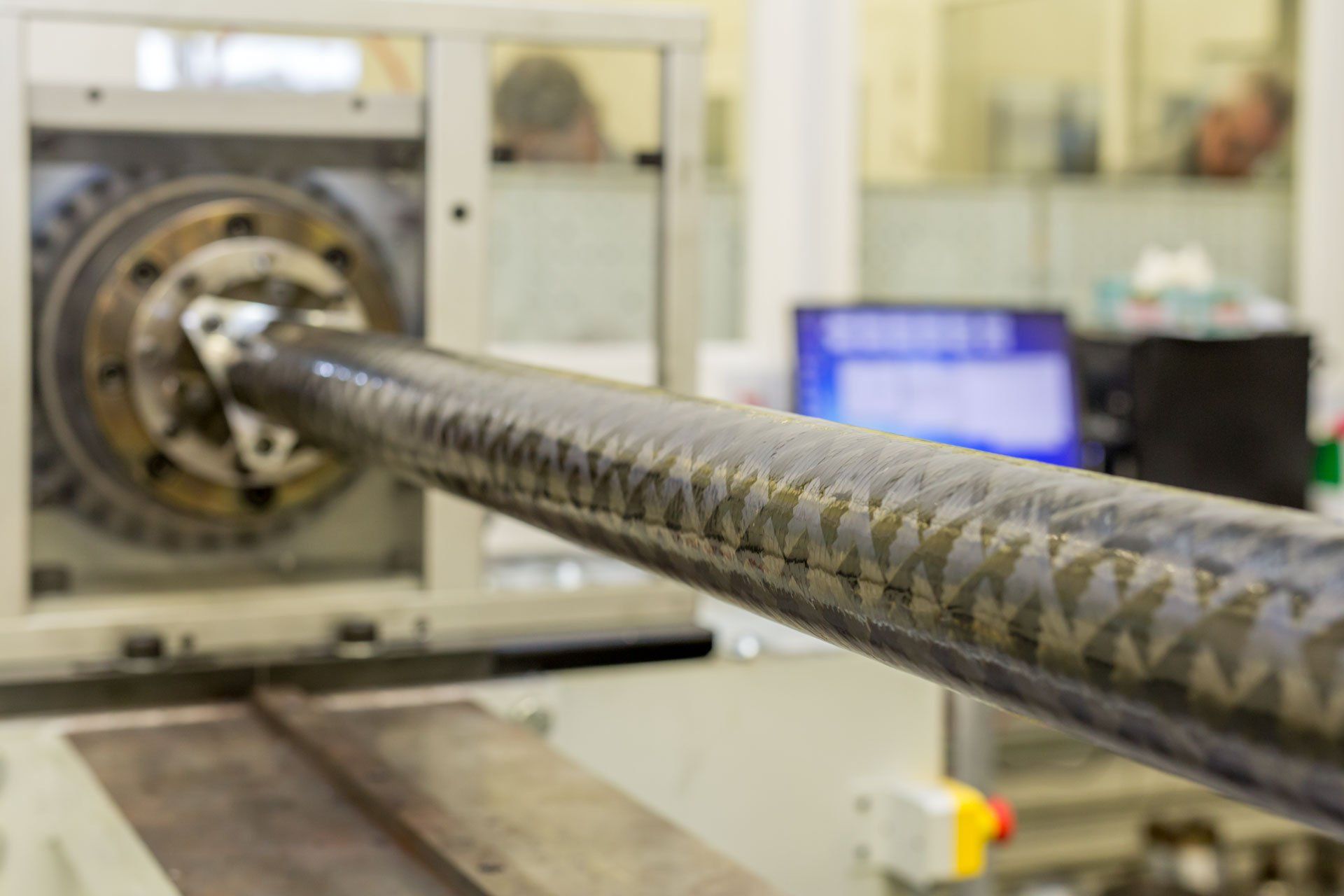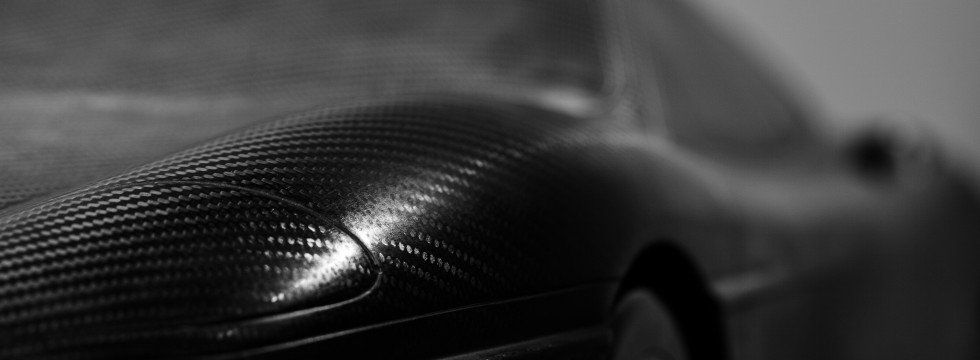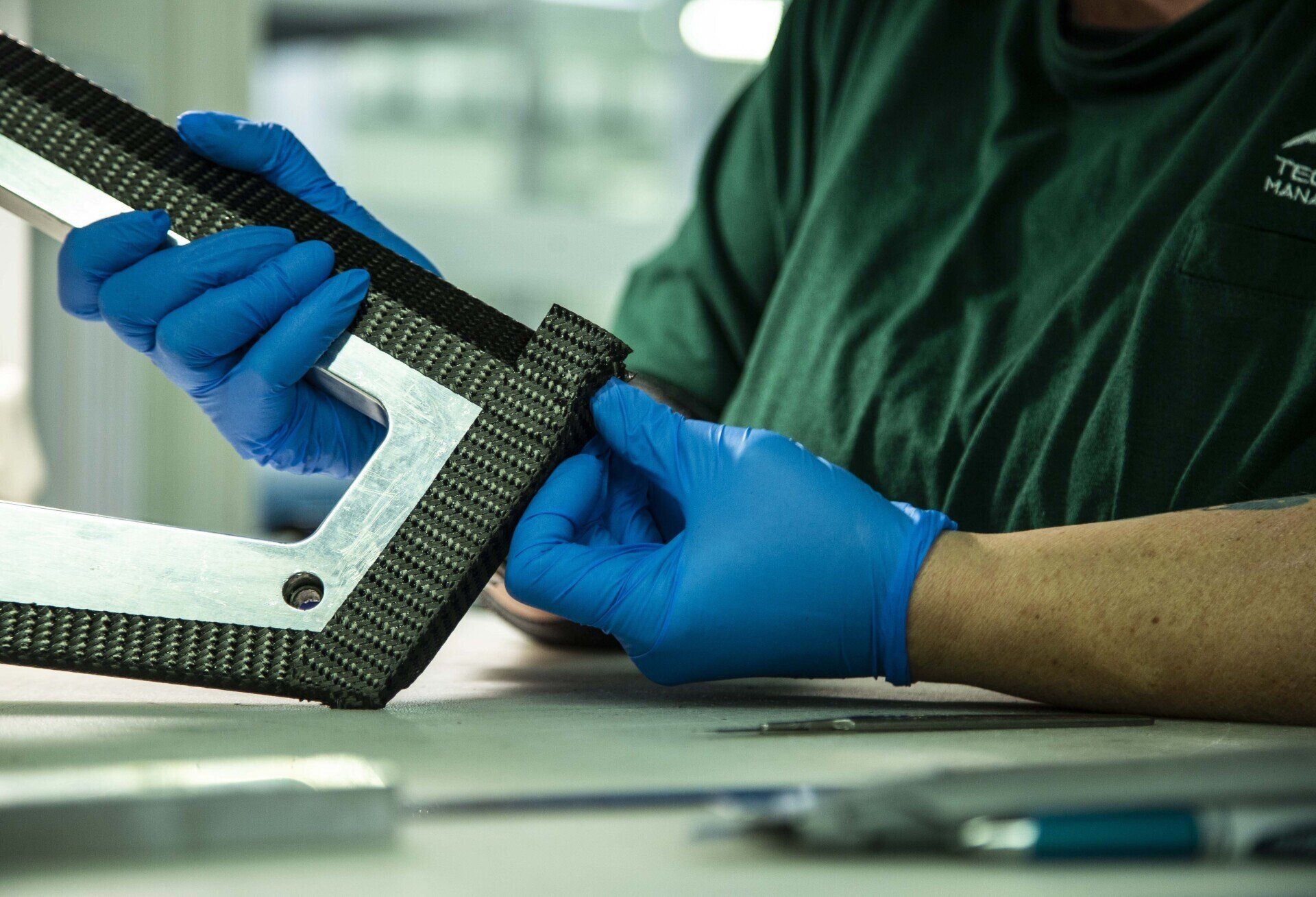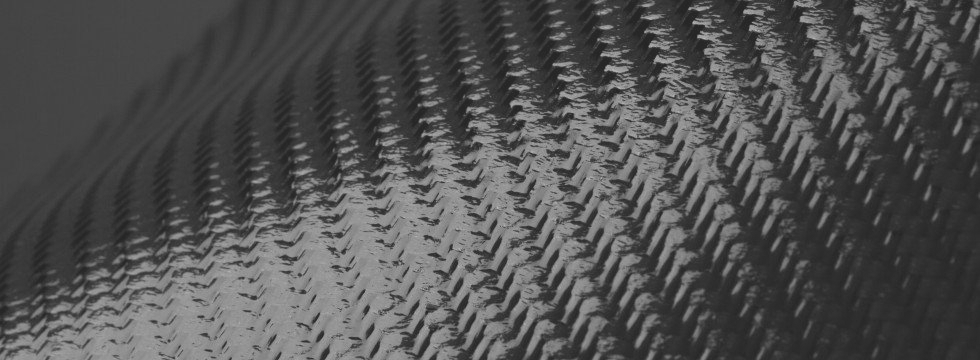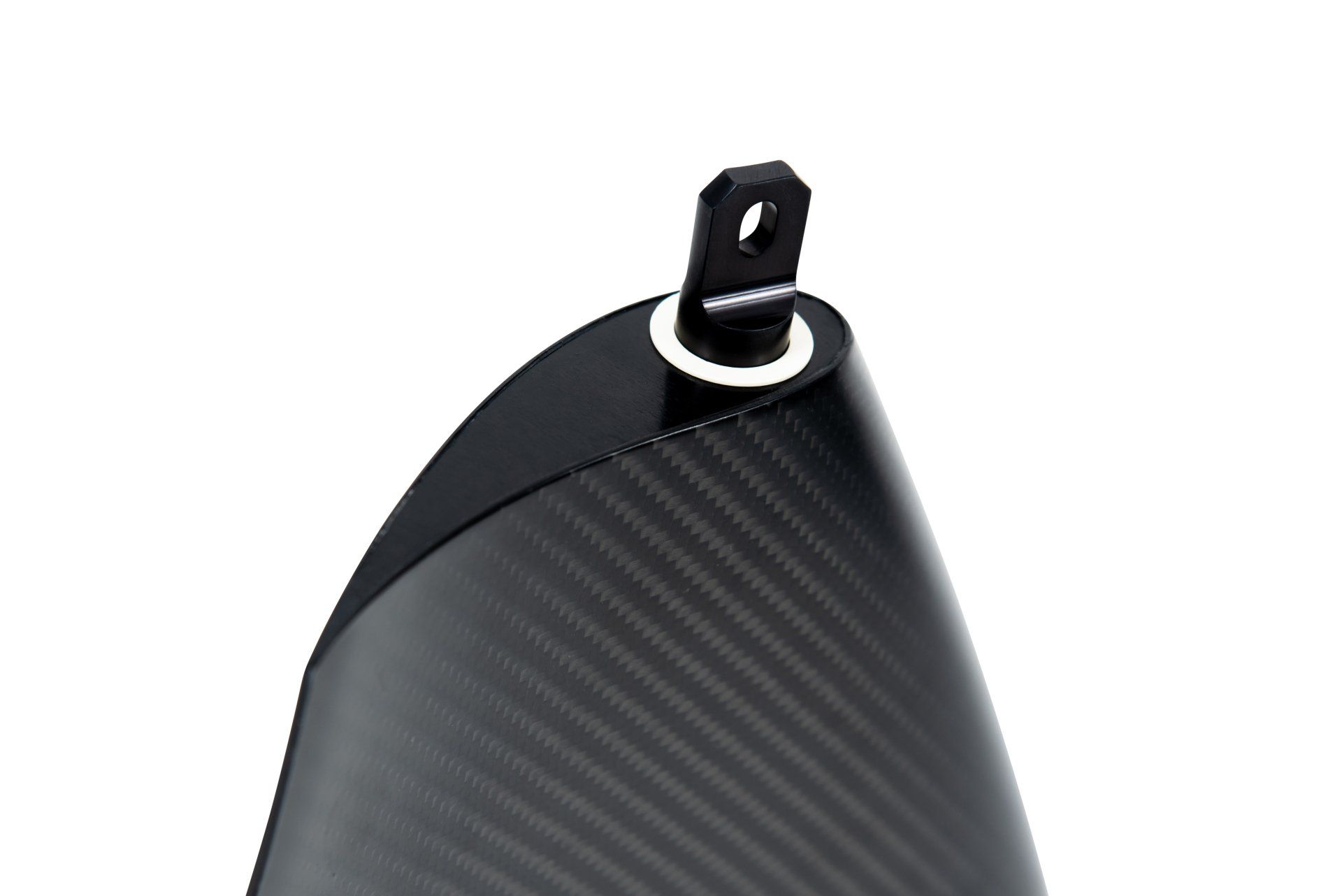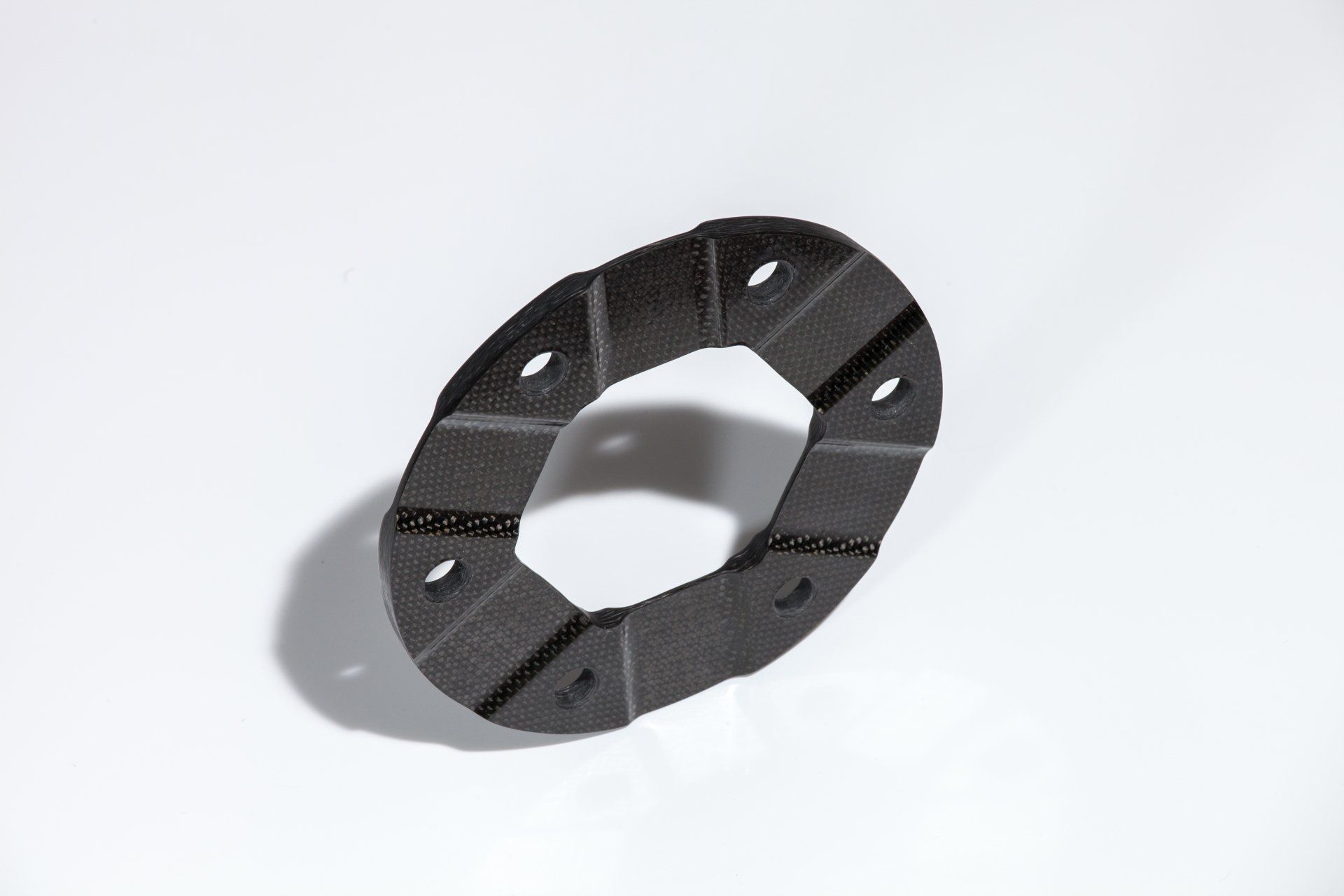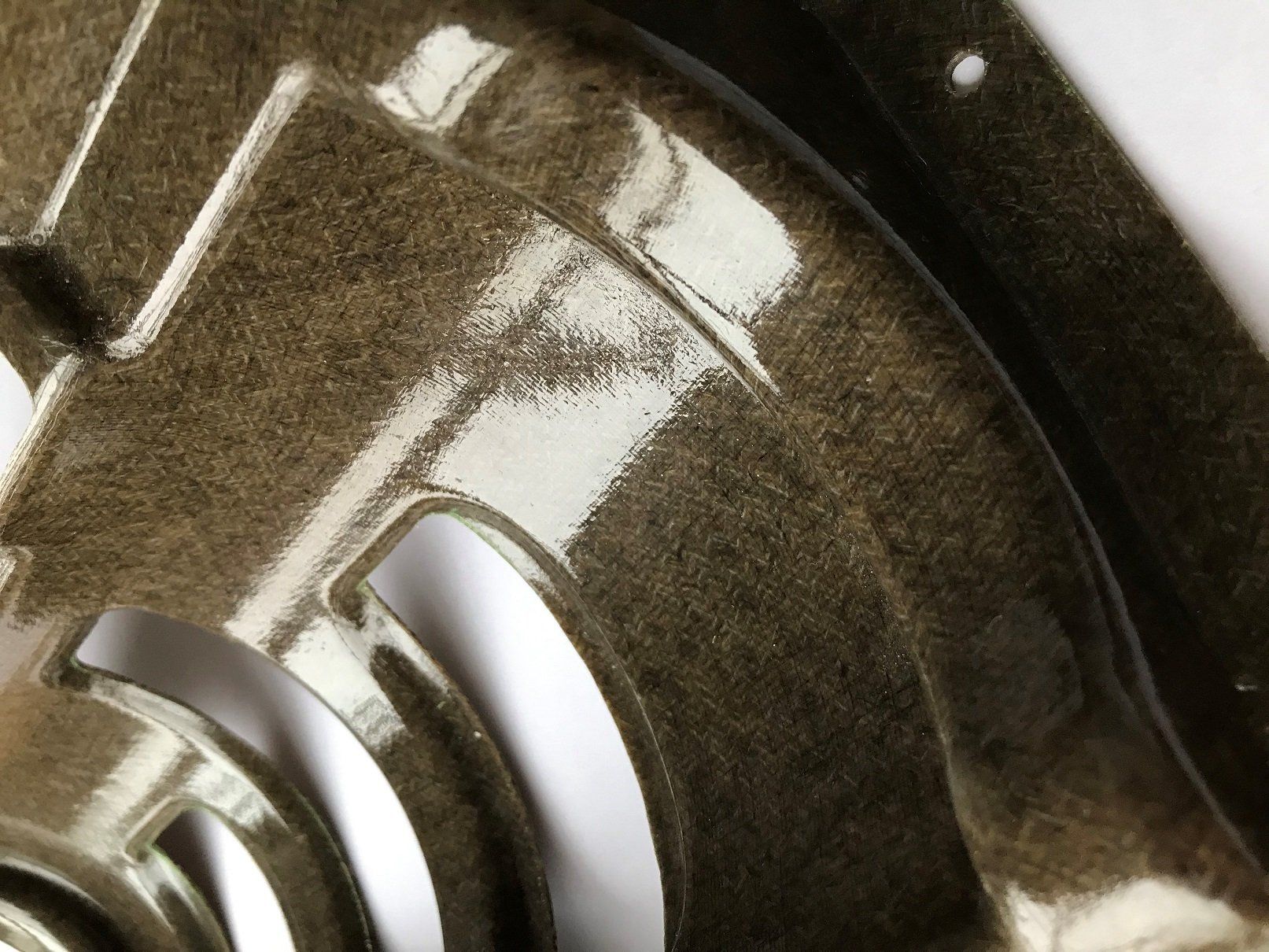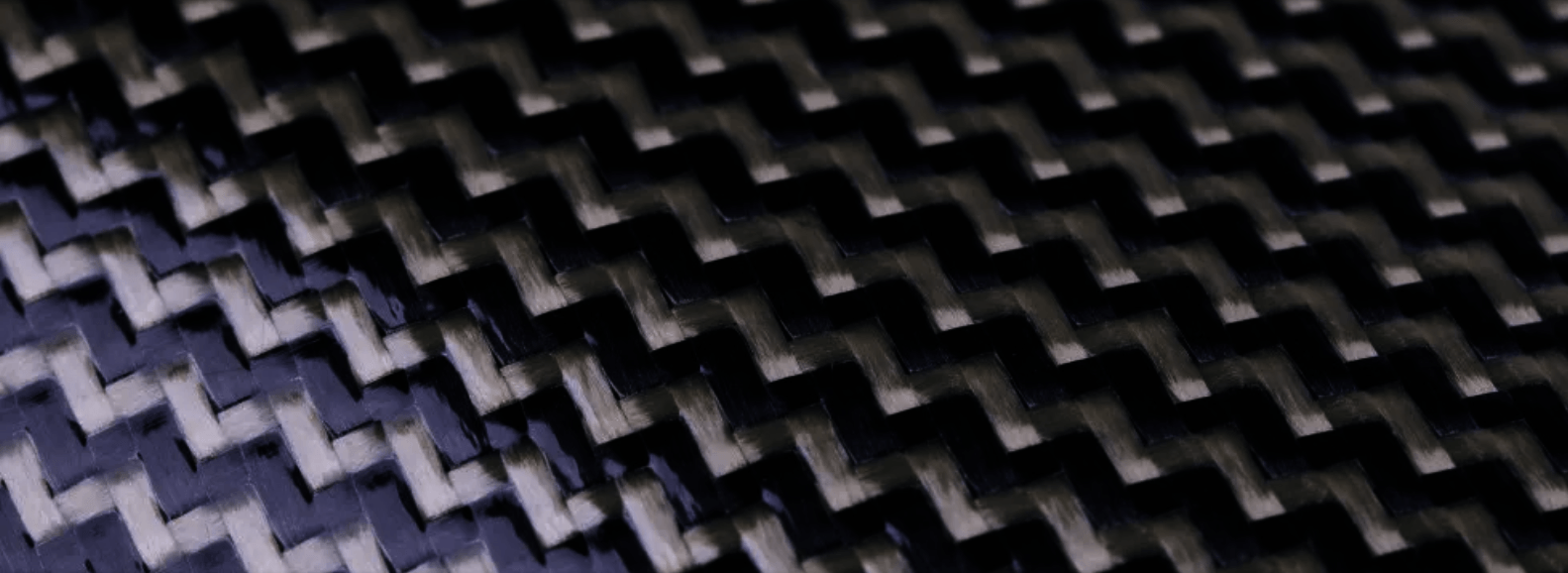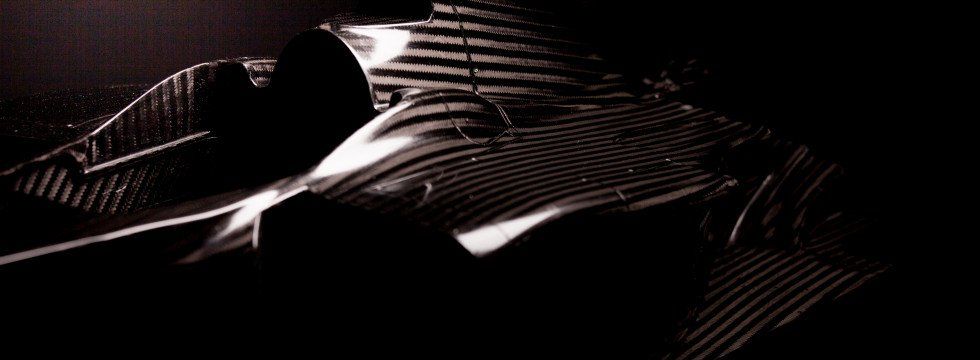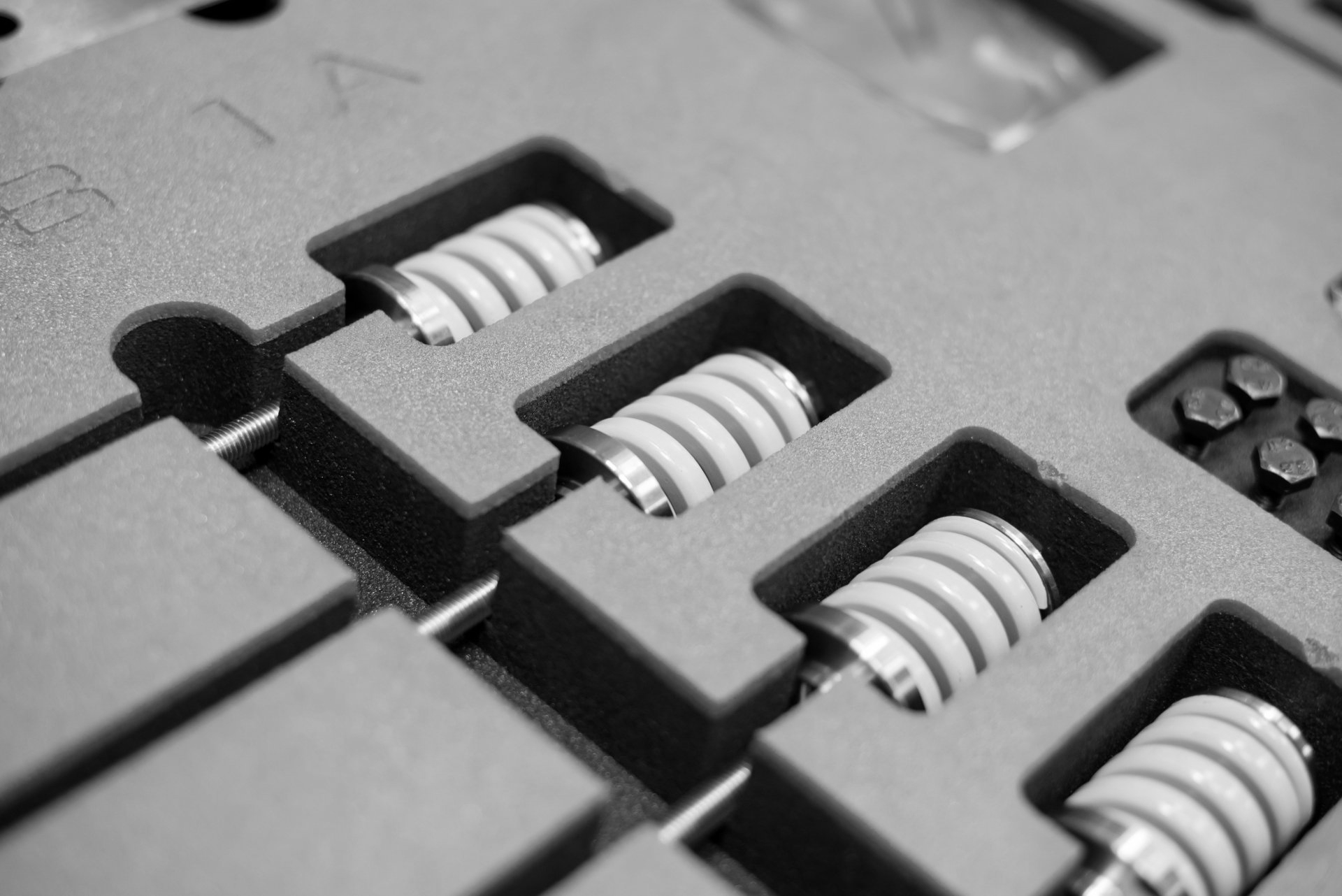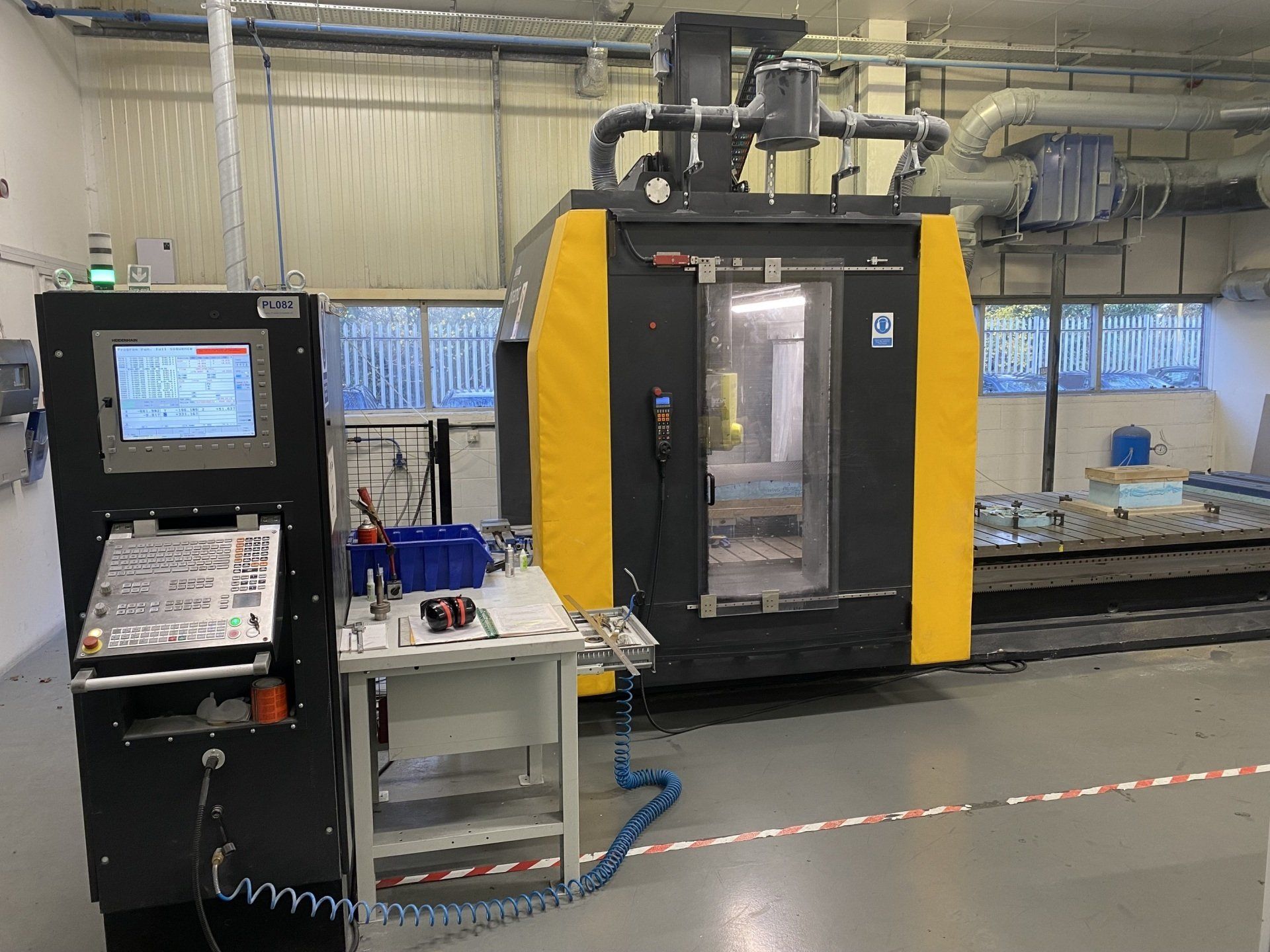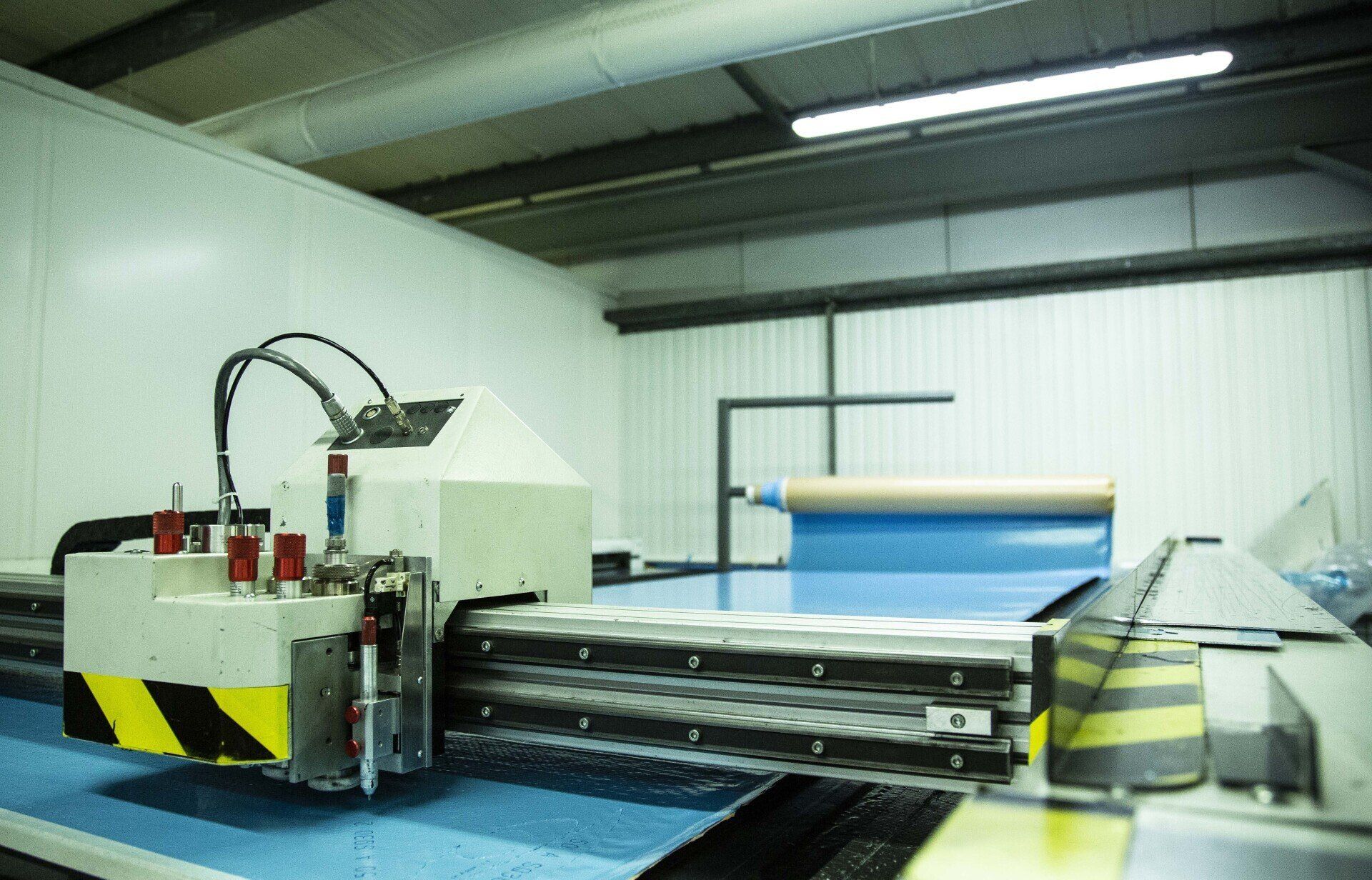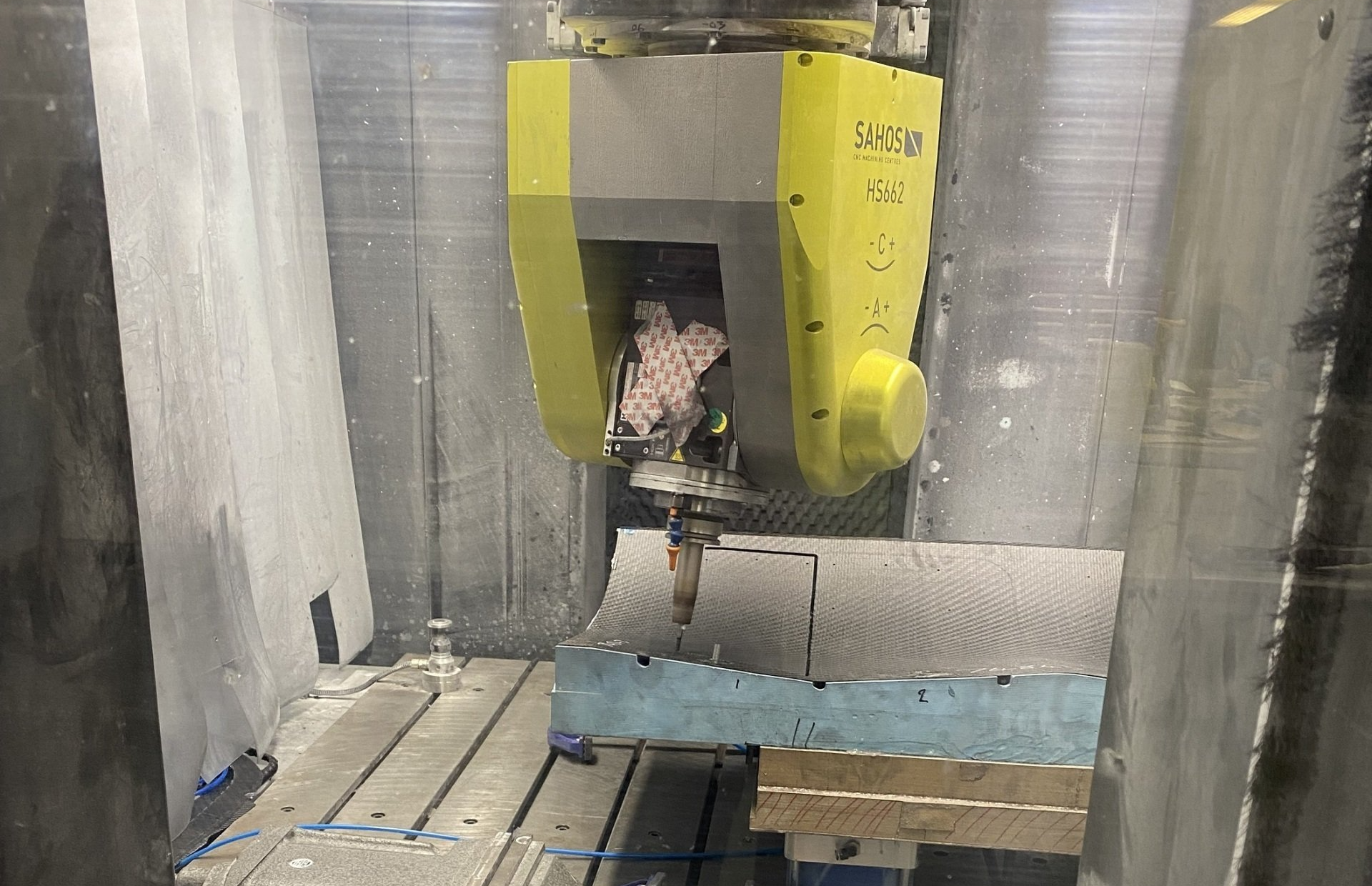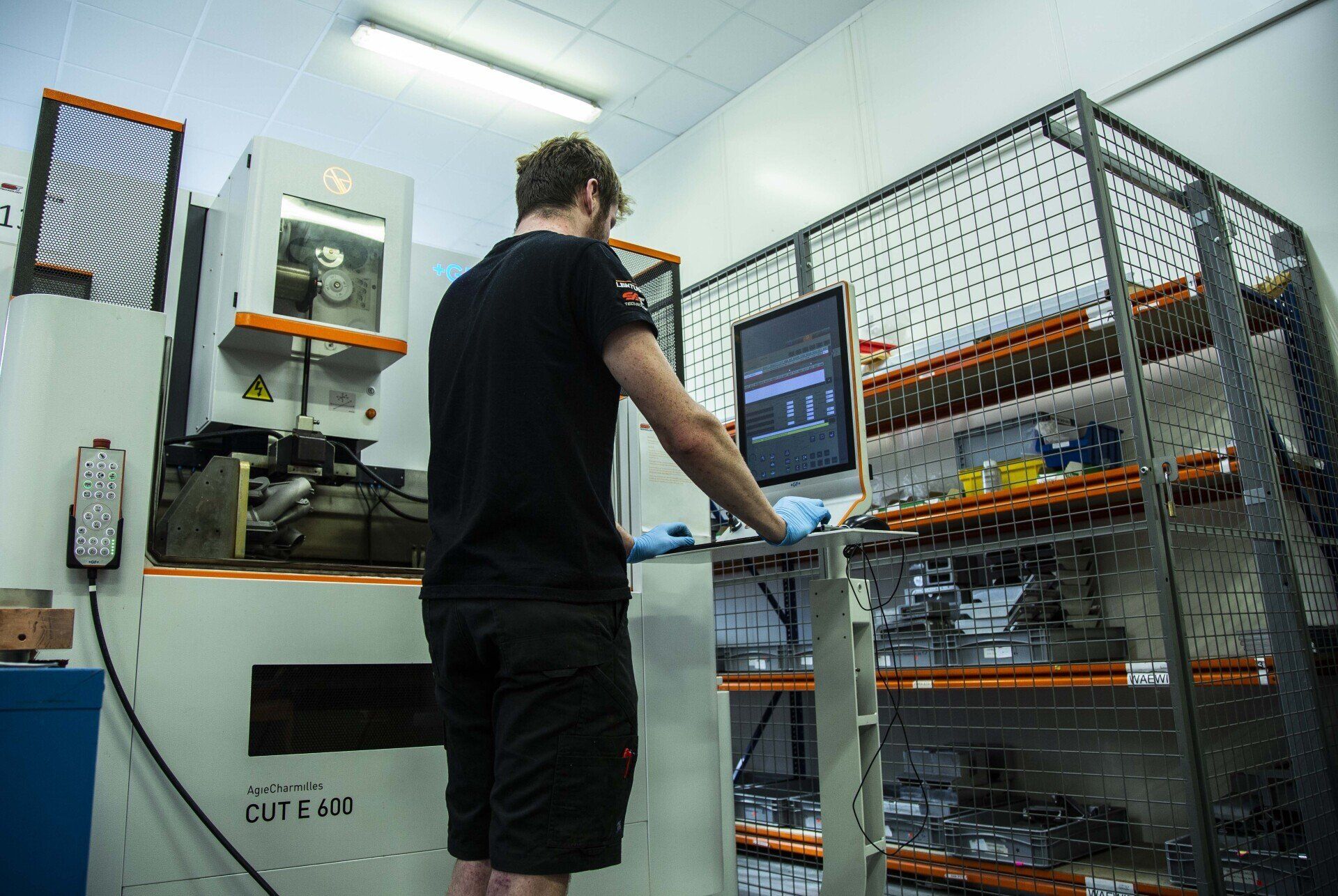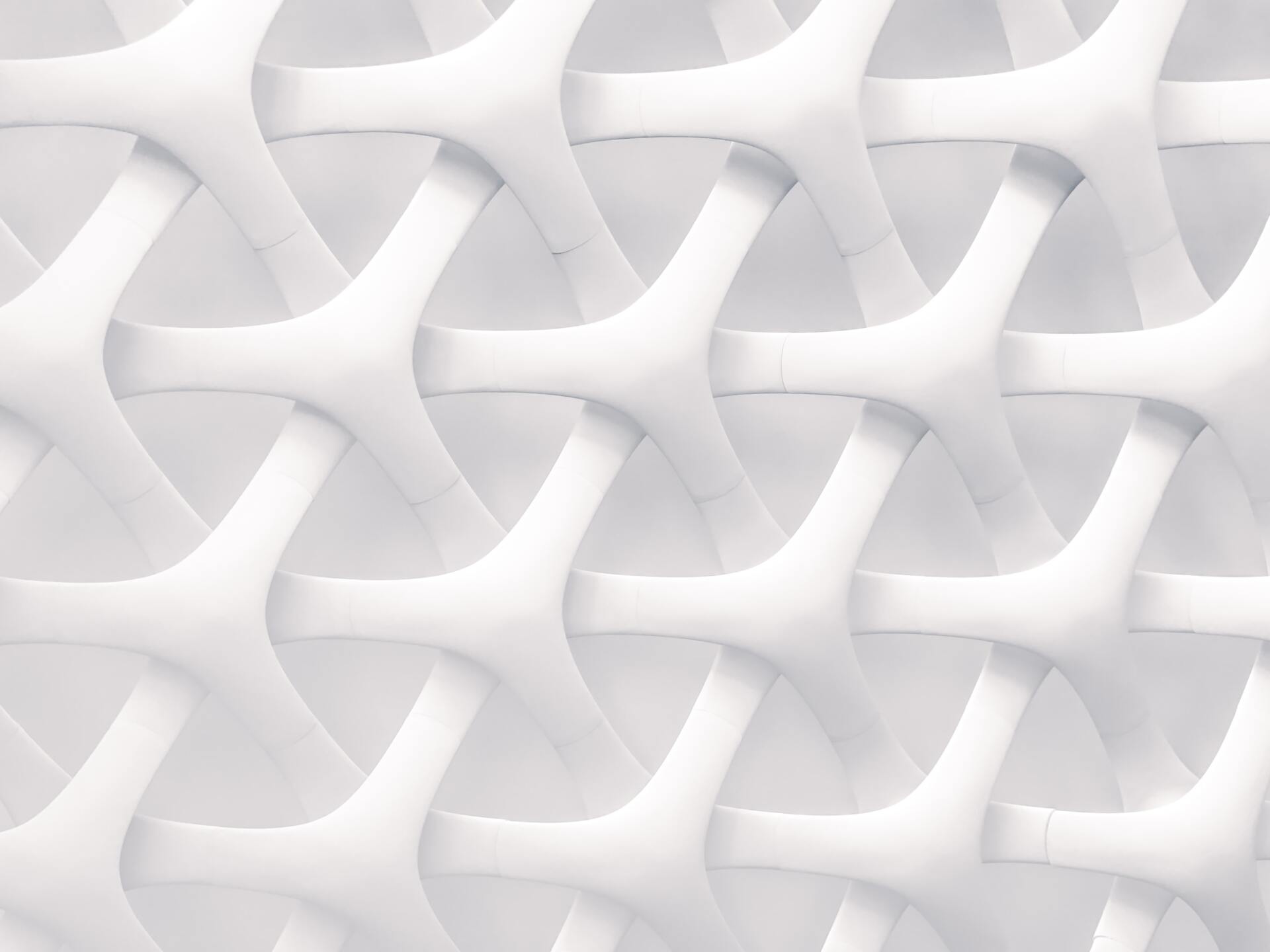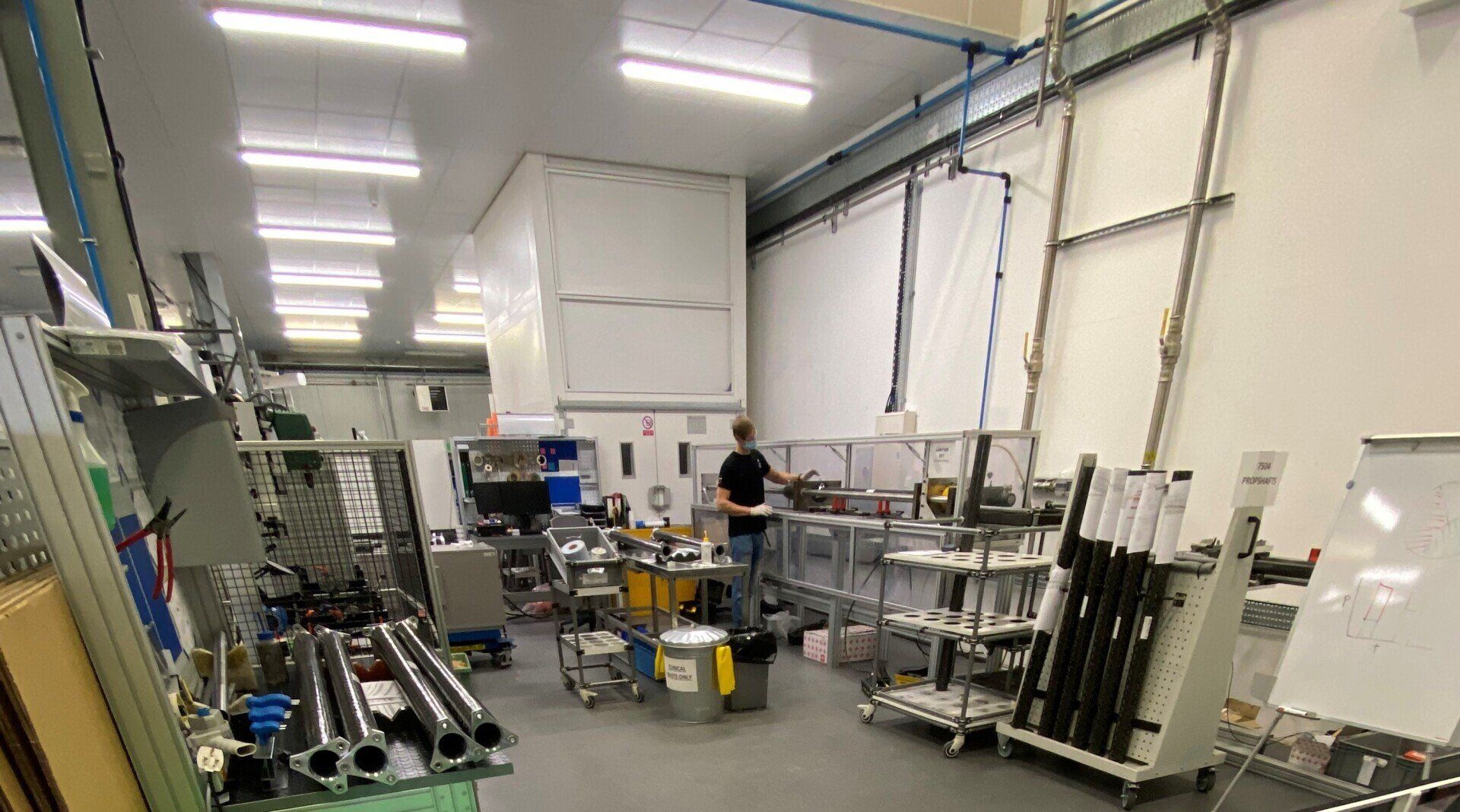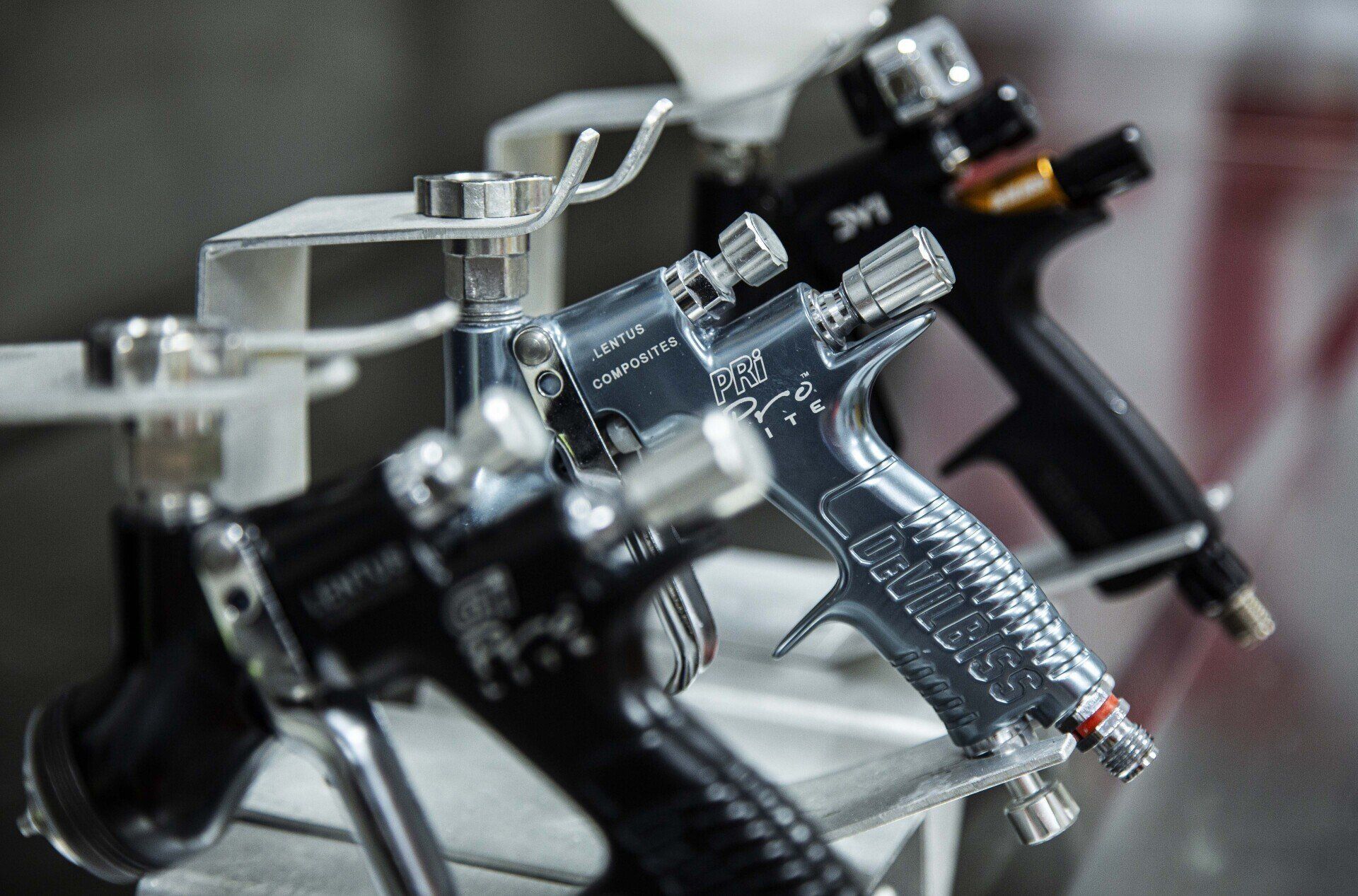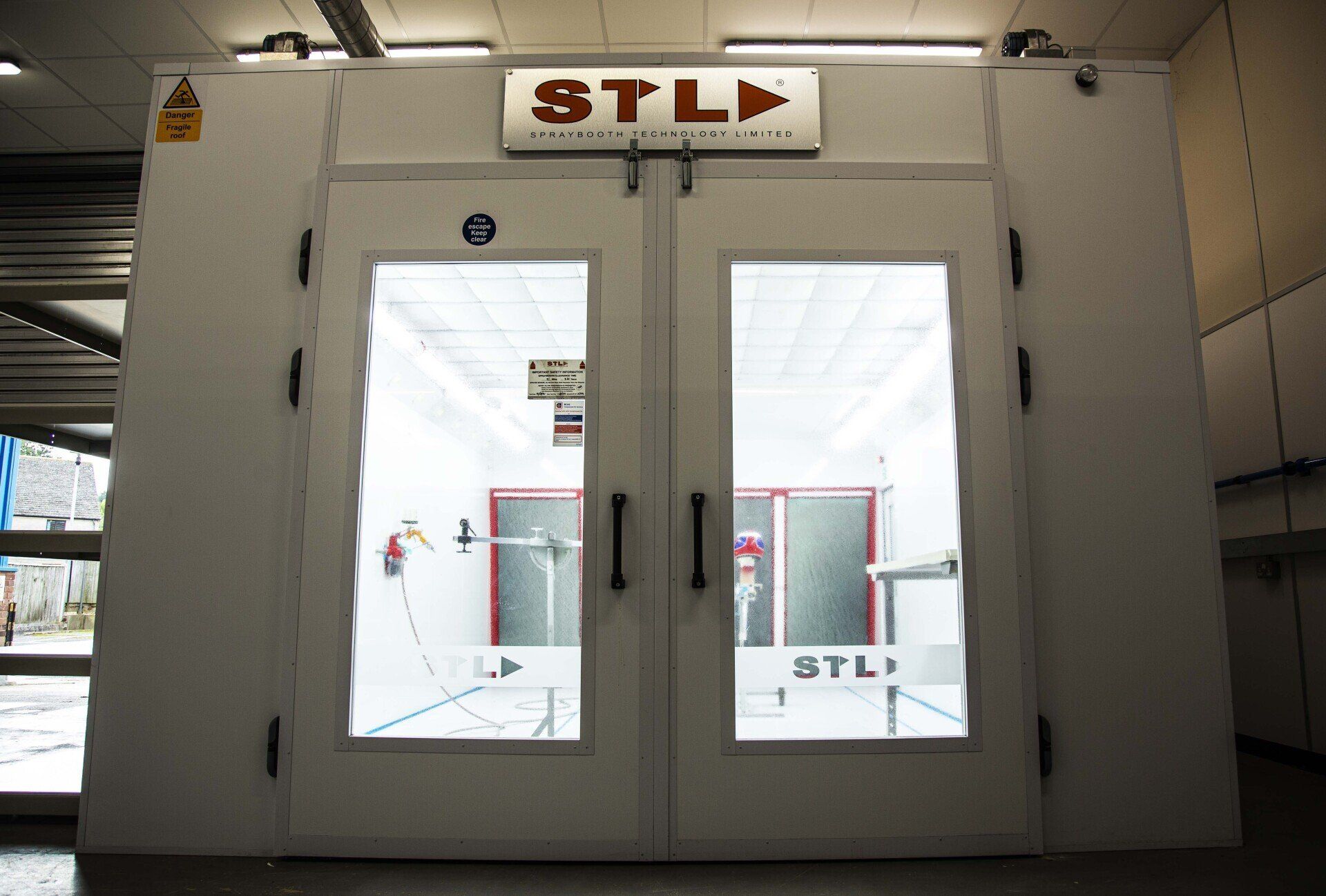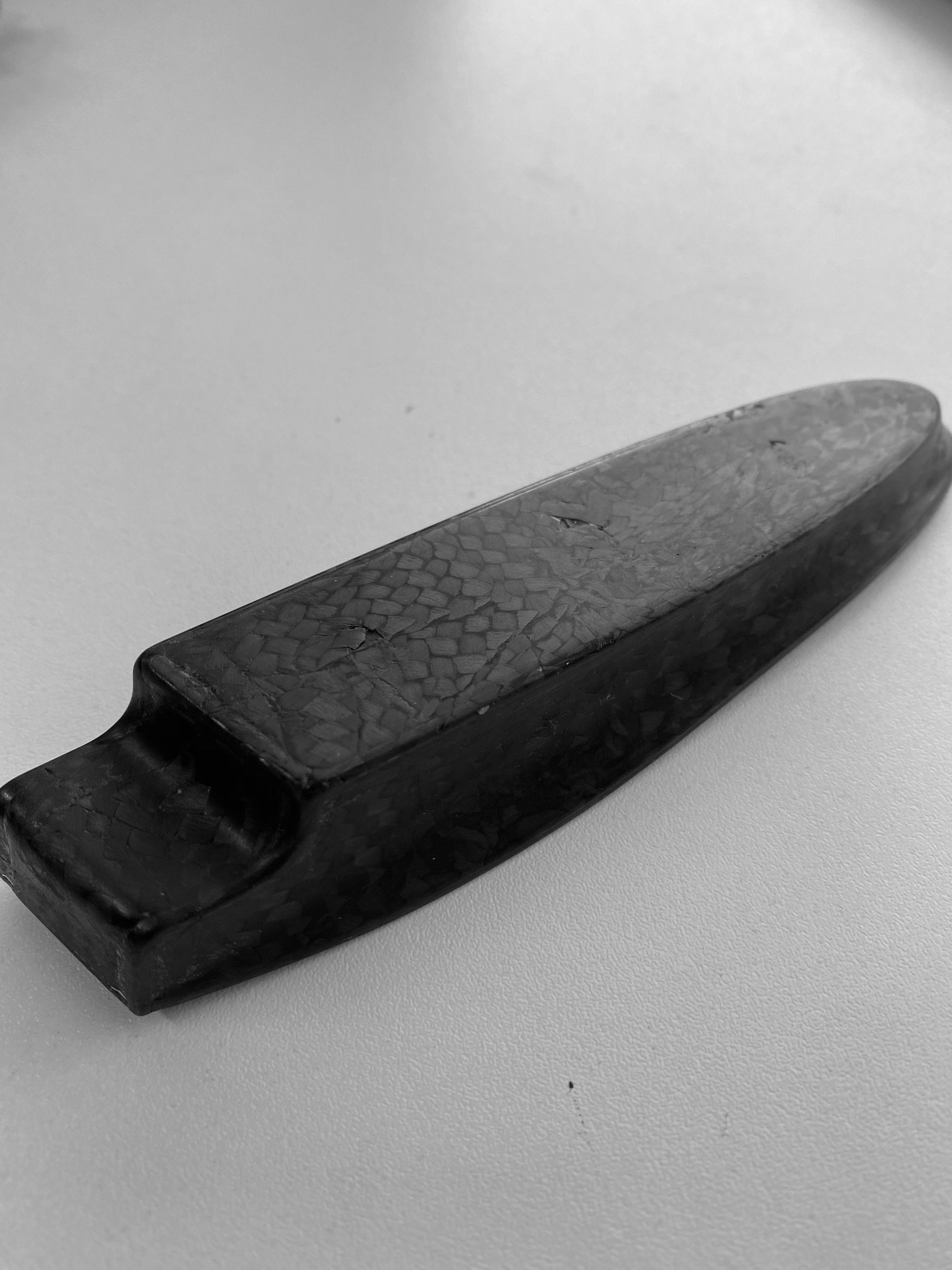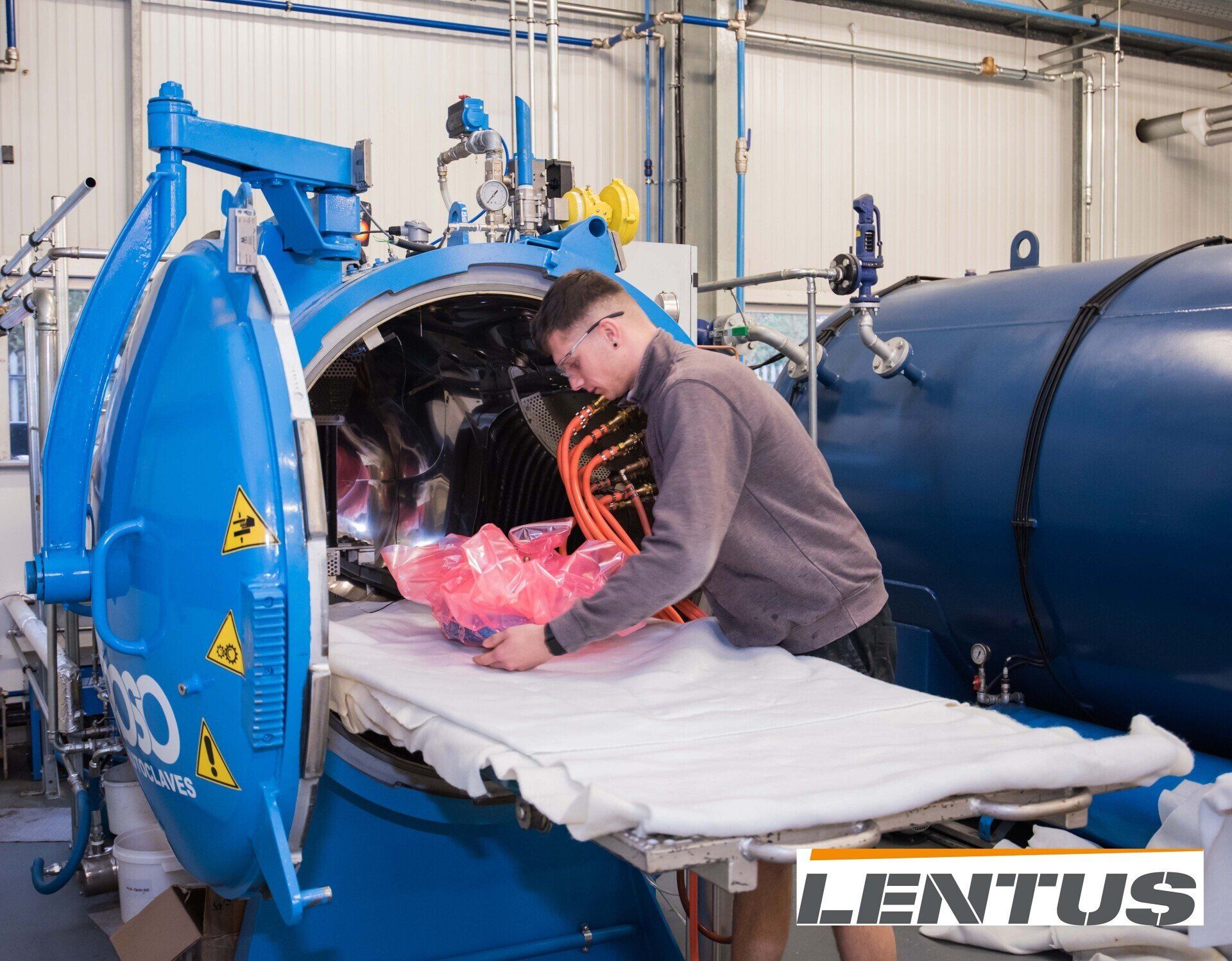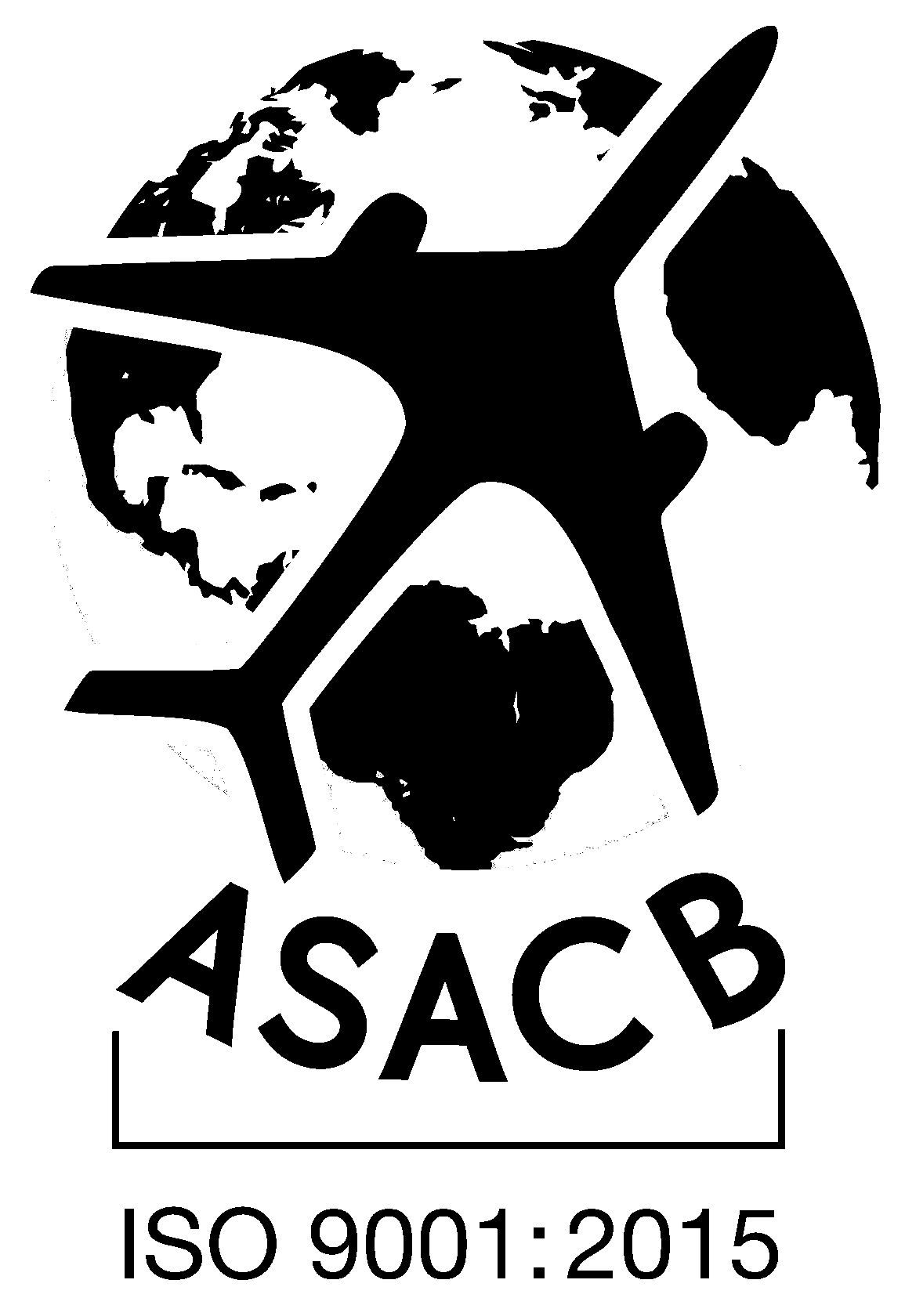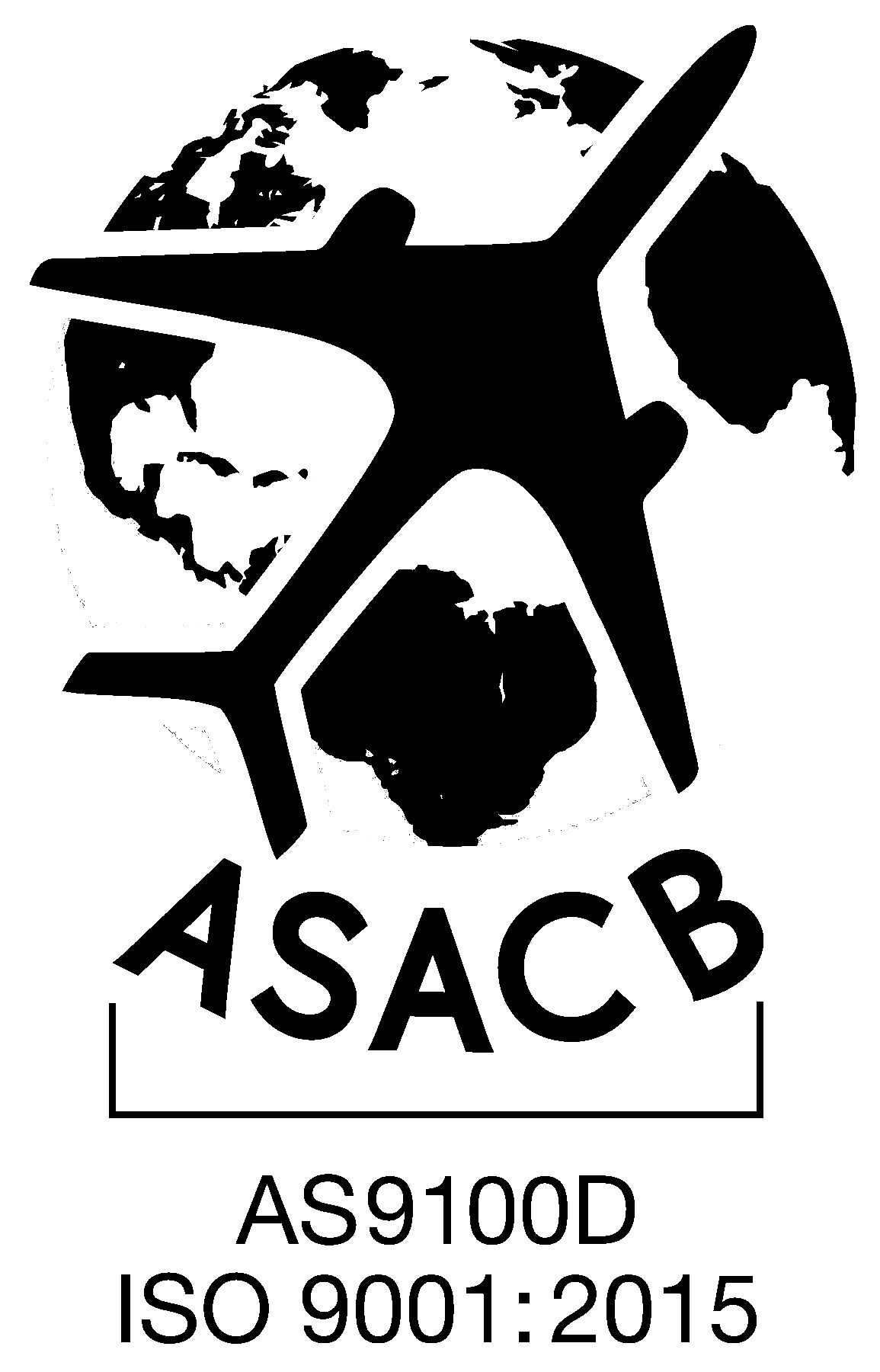Capabilities
Lentus Composites has a wide repertoire of processes at its disposal. These processes are selected and optimised for each product whether the requirements are for a filament wound part with exceptional axial properties, a multi-axial winding for a pressure vessel or an autoclaved moulding for a Formula 1 chassis component.
Filament Winding
Filament winding is an automated composite manufacturing process suited to the production of axisymmetric, or close to axisymmetric components. From Tubes to Spheres and any shape in-between, this process is suitable for producing very high performance products.
The filament winding process is very flexible, enabling the creation of a wide variety of laminates, with full control over the fibre angles. The products can be produced with a wet wound process that allows maximum flexibility for reinforcement and matrix selection. Alternatively components can be wound with pre-impregnated material in the form of a slit tape or a tow preg.
Lentus can design, develop and manufacture a range of products using filament winding, these include:
- Tension Elements
- Lightweight Composite Pressure Vessels
- High Speed Rotating Machinery
- Composite Transmission Shafts
- Structural Tubes
The Lentus Team have experience in building a wide range of quantities of parts, from a single product for a privateer motorsport outfit, to 10,000 parts for medical applications, through to 100,000 parts per year in volume production for industries including Aerospace and Nuclear sectors.
"From Tubes to Spheres and any shape in-between this process is suitable for producing very high performance products."
Autoclave Pre-preg
With years of experience of laminating and producing composite products using pre-preg, the Lentus Team have made it all. From simple brackets through to F1 Chassis and Aero parts, from Bikes to UAV’s – Lentus has experience across this and many other industry sectors.
We have the capability to handle projects from start to finish including the design of components, tooling design and machining of tooling through to the manufacture of the components. These can be manually finished or, where tolerances are critical, they can be machined on our CNC machining centres.
We have five on-site Autoclaves, the largest being 2.5m Dia x 4m deep, a complete Layup and Bagging room, and two finishing rooms along with systems for full materials analysis and testing.
Within the group, we can machine and deliver patterns in resin tool board quickly using any one of our 9 machining centres. We can also machine and produce any metallic or composite inserts required for any project.
Our experience includes making products as diverse as full monocoques for racing cars, aerodynamic surfaces, enclosures and bracketry, as well as parts for the sports and leisure industry such as specialist cycle frames, automotive components and cosmetic parts.
"With many years of experience in the team of laminating and producing composite products using pre-preg the Lentus Team have made it all."
LTM Out of Autoclave Processes
Some products do not require the use of an autoclave to meet cost or performance targets. LTM and Out of Autoclave processes can be applied to great effect for large and small structures where complex forms are required and are not appropriate for autoclave processes.
The tooling required for LTM and Out of Autoclave processing can be cost effective as it does not need to resist the forces created by the pressure within the Autoclave, so lightweight hollow or foam based tooling can be constructed.
These processes are ideal for cost effective, small-to-medium volume production.
"These processes are ideal for cost effective small to medium volume production."
Resin Transfer Moulding (RTM) & Resin Infusion
Resin Transfer Moulding (RTM) uses a closed mould with a dry fibre preform, where a liquid resin is injected and cured inside the mould. RTM can be carried out by creating a vacuum inside the tool (VRTM) to draw in the resin or the resin can be injected at higher pressures to fill the mould, depending on the application. The main benefits of this process is the low cost of tooling and that it can be used to process larger parts, lending itself to low volume production of big parts.
RTM is particularly suited to applications where a finished surface is required on all sides, there is no need for an “A” and “B” surface, both faces can be dimensionally accurate and finished to the mould surface.
RTM, like filament winding gives the opportunity to use different combination of fibres and resin systems to produce products with properties tailored to the application.
Typical products made by this process include covers, housings, panels, drive couplings, seats, and boat hulls amongst many other. Aerospace qualified fibre and resin systems are also available for the RTM process.
"RTM, like filament winding gives the opportunity to use different combination of fibres and resin systems to produce products with properties tailored to the application."
Thermoplastics Composites
Thermoplastic composites offer the opportunity for parts with much higher toughness than the thermoset matrices used in other products.
Thermoplastic composites can be processed more quickly and are more readily recycled, lending themselves to higher volume components where end of life considerations are becoming increasingly important. Typical low volume products would include under chassis protection for rally cars.
"Thermoplastic composites offer the opportunity for parts with much higher toughness than the thermoset matrices used in other products."
Assemblies, Systems & Kitting
Lentus Composites specialises in the design, development and delivery of complex engineering systems where the composite element offers the enabling technology. This means that we are not just a composites business, but an engineering business who use composite technology and products within our wider offering. We offer a complete production and operations service.
We act as the Tier One supplier to major corporations delivering our high performance composite products with the complete kit of machined and electrical components required line side. Lentus offers the complete supply chain solution with systems and processes to suit your build requirements.
"Lentus Composites specialises in the design, development and delivery of complex engineering systems where the composite element offers the enabling technology."
Component Finishing & Machining
A composite product is not complete until it has been finished or machined to its final form. For simple parts, where tight tolerances are not critical, it may be acceptable to trim parts using hand tools, where our highly-skilled team can ensure maximum quality.
However, where composite materials are used in highly stressed applications, structural components or aerodynamic elements, dimensional control of the finished part is critical. Lentus has access to 3-axis, 4-axis and 5-axis machining facilities to finish composite parts, as well as the capability to accurately turn composite components for use in high speed machinery such as high speed motors/generators, vacuum pump components or energy storage fly wheels for example.
This machining capability is backed up with dimensional inspection capability including 3D laser scanning, CNC coordinate measuring machines and conventional gauges and inspection jigs.
"Lentus ... has the capability to accurately turn composite components for use in high speed machinery such as high speed motors/generators, vacuum pump components or energy storage fly wheels for example."
Dedicated Cellular Manufacturing
Our businesses have been established upon a very flexible manufacturing philosophy. Customers come to us asking for a wide spectrum of requirements and often their project can be in the very early stages of development, or perhaps mature and well defined meaning industrialisation is imminent.
This means we have adopted a truly flexible approach where we can channel products through a number of different Micro Factory departments. If these products reach a stage where they are then at a volume of parts which justifies a focused approach, the business will set up a dedicated manufacturing cell or line to meet the needs of our customers.
These self contained and self sufficient dedicated areas are then individually managed and measured against master production schedules using SQCDPs management tools and other key metrics. The business has several customers where we work against a Kanban call, in some instances we have a replenishment timeframe requirement of under 4 hours and have an exemplary 100% OTIF record.
"We have a adopted a truly flexible approach where we can channel products through a number of different flexible Micro Factory departments."
Paint Shop
In addition to specialising in the design, development and manufacture of composite technology for advanced engineering applications, Lentus also has its own in-house paintshop.
The 7×4 metre STL spray booth has LED lighting 4000 Lux. The STL AquaDry air agitation system can assist curing and increase efficiency. There are also controlled areas for paint mixing, preparation, polishing and inspection.
The highly qualified team has vast experience in automotive manufacturing, motorsport, medical and aerospace coatings which enables them to identify new opportunities and applications for industry specific products and processes.
"The highly qualified team has vast experience in automotive manufacturing, military, motorsport, medical and aerospace coatings."
Compression Moulded Composites
As specialist manufacturers of composite structures and assemblies, with specific focus on those components and assemblies where the composite is the enabling technology, Lentus have carved a niche in the market for both moulded and wound composite structures.
Lentus employ a novel metallic-composite joining technique that allows for the transfer of loads into composite structures, meaning that we are able to manufacture composite components for applications where they would have been previously unviable. We have also worked over the last few years to develop a novel core manufacturing technique which allows us to manufacture complex moulded composite products as a single structure using a single cavity tool as opposed to manufacturing multiple smaller components and assembling them together.
Working for some of the biggest names in the automotive, aerospace, industrial and defence sectors, Lentus have designed, developed and manufactured enabling products to solve our customers' biggest problems. Our products are flying on jet engines around the world and working to create 750kg of downforce on the world's fastest production road car. To minimise costs and maximise productivity we automate as many of the processes as possible including machine trimming and autoclave curing.
"We are able to manufacture composite components for applications where they would have been previously unviable."

